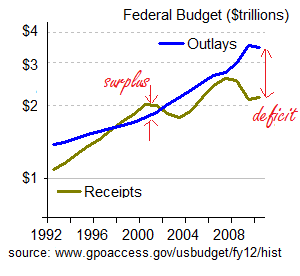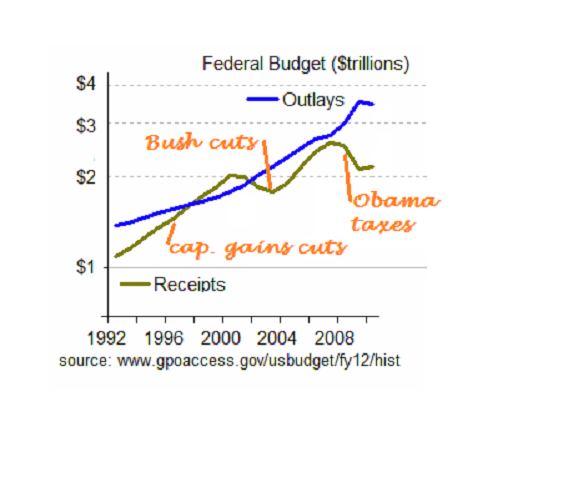Artevelde
Senior Member
Well, actually in january 2001 (when Clinton left office) the total national debt in absolute terms was moderately higher (5,7 trillion vs 4,2 trillion) then in january 1993 (when Clinton took office). As a percentage of tha GDP it had declined somewhat from 66,2% to 57,3%.
In the 8 years of George W. Bush the national debt rose 4,9 trillion in absolute terms (to 10,6 trillion). As a percentage of GDP it rose in those 8 years from 57,3% to 73,8% (+ 16,5 percentage points).
In the less than 4 years of Obama the national debt has risen 5,4 trillion in absolute terms (to 16 trillion) and is now above 100% as a percentage of GDP (101,8%).
In the 8 years of George W. Bush the national debt rose 4,9 trillion in absolute terms (to 10,6 trillion). As a percentage of GDP it rose in those 8 years from 57,3% to 73,8% (+ 16,5 percentage points).
In the less than 4 years of Obama the national debt has risen 5,4 trillion in absolute terms (to 16 trillion) and is now above 100% as a percentage of GDP (101,8%).





